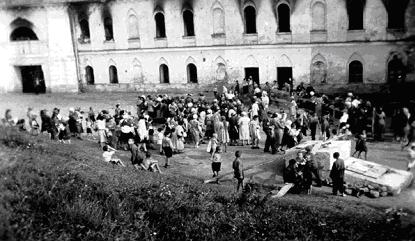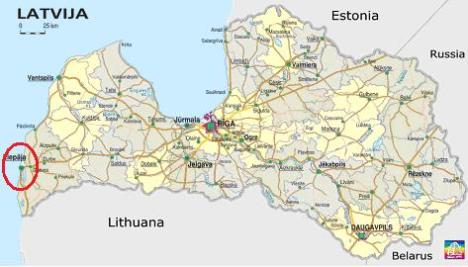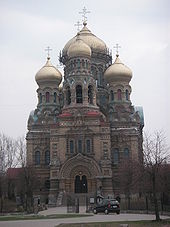In the Moral Dust, there was a photo of rabbis who had died in the Holocaust. Many books have been written about the Holocaust. Some try to explain why it occurred, others say there is no way to explain it. In this section, I provide some details about the events themselves, as they occurred in Latvia.
In the early 1920s, the German National Socialist Party planned to expel all Jews from Germany and to destroy European Jewry. The Nazis considered Jews to be barbarians, democrats, liberals, capitalists AND communists – qualities considered alien to the Aryan ideal of a salubrious Germany and Europe
On March 1941 Hitler – preparing to attack the USSR – appointed Heinrich Himmler, Reichsführer (Chief) of the SS, and Reinhard Heydrich, head of the German Security Service, to organise the total and swift annihilation of Jews living in the German-occupied territory of the USSR. By July, 1941, the whole of Latvia was under German occupation. Of the 90 000 Latvian Jews, only about 15 000 managed to escape to unoccupied Russia – where they were not treated much better.
The Nazis appointed local anti-Semites in the invaded territories to assist in the annihilation. The Latvian Holocaust began on June 23, 1941. Jews were killed in different towns such as Durbe, Priekule, Jelgava and Zemgale. The main synagogue of Jelgava was burnt down.
The Latvians were generally pro-German: they had had close ties with Germany for many centuries. As I mentioned earlier, the names of the streets and other places had German names. For example, in Libau, the Latvian army was stationed at “Kreigshafen”. Kornstrasse and Grosse Strasse were among the main streets, with the many smart shops and cafes, which were very much like Allenby street and Dizengoff street in Tel Aviv. (As of this date, Sept 2009, my brother Joe lives in Dizengoff Street).
In the capital, Riga, Viktors Arājs, a student, aged 31, was in charge of the mayhem. He is described as an “eternal student supported by his wife, a rich shop owner, who was ten years older than him. Arājs had worked in the police for a certain period of time. He stood out with his power-hungry and extreme thinking. The man was well fed, well dressed, and with his student’s hat proudly cocked on one ear.”
Under Viktors Arājs, the Riga Jews were arrested, beaten, robbed, their synagogues were burnt down, and thousands were killed. Individual Latvian self-defense units were also involved in the extermination of Jews. All killings were supervised by German officers. In July 1941, about 4000 Riga Jews were transported to the Biķernieku Forest, where they were shot and buried in mass graves.
In the Dvinsk area (today’s Daugavpils) – where Mendel Gilinsky and his family lived until they moved to Libau, where Fanny was born) – about 15000 Jews were moved to the Grīva ghetto. Most of them were transported to surrounding fields and shot and buried in mass graves the size of houses. One German commandant of the Daugavpils Ghetto, Zaube, took offenders – especially those who had smuggled in food to the inner square of the ghetto – and shot them in front of the other inmates. Here is a photo of inmates of the Dvinsk ghetto awaiting transport to take them to the killing fields.

The situation was similar in all the ghettos of Latvia. The Riga ghetto was set up in the Latgale Suburbs, which was mainly a poor area inhabited by Jews, Russians and Belarussians – all enemies of the Germans. About 23,000 Riga Jews were moved to the ghetto, which already had 6000 inmates, and heavily overcrowded
Zaube, the German commandant of the Daugavpils Ghetto, stood out for his extreme cruelty. He killed offenders – especially those who had brought in food. They would be executed on the inner square of the ghetto in front of all inmates to frighten and to humiliate them. It was in Daugavpils that the liquidation of ghetto inmates started. On November 810, 1941, 3000 people were killed in Mežciems. The operation was headed by Obersturmbannführer (Lieutenant-Colonel) Günter Tabbert, who was then 25.
Let’s now go East to Libau (Liepaja circled in red on the map of Latvia below); my mother’s birth place.

Libau was invaded by the Germans in June 29, 1941. I was born on 7 June of the same year very far from the Holocaust – in Cape Town, South Africa. The Jewish population of Libau counted 9,000, and straight away the systematic extermination started.
The first victims were 33 Jewish workers. Then all Jewish males between 16-65 had to come every morning to the “Hauptwachplatz”, where they were escorted to work in various work stations, accompanied by beatings. Many did not return home at night. They were ordered to dismantle the Great Synagogue, the “Chor-Schul”, brick by brick, and to destroy the Torah scrolls.Here is a picture of the Great Synagogue of Libau.
After the destruction of the Great Synagogue, the Latvian Press stated that the Synagogue cellars contained hidden weapons and stolen Latvian property.
In these first weeks about 2000 Jews were killed. On the 24 July, 3000 more Jewish men were assembled on the “Hauptwachplatz”. After they had been relieved of their papers and valuables, they were taken to a lighthouse near a small fishing port where they were killed on the spot. Most of the smaller villages suffered a similar end. The executioners got a big kick out of killing 50 old men and women on Yom Kippur, the day of atonement, which is the most solemn day of the Jewish calendar. When Latvians living in the vicinity of the Lighthouse complained about the noise, the killings were suspended.
Not long after, Jews were ordered to remain at home on the 15 and 16 December. Their non-Jewish Latvian compatriots told them to dress warmly because they were to be sent to work far from home. They did not go far, a mere seven kilometers, to Shkeden, where 3000 were killed on the beach. Some of the killers were so overwhelmed by their own evil that they went insane. The German Commissar, Laze, complained to the German High Command that he needed the Jews for his labour force, and the killings were upsetting his plans. Berlin’s pithy reply: “Economic considerations are not to be taken into account in solving that problem.”
After several more exterminations, until January 1942, the Ghetto of Libau was established. In early July there were 816 people including 175 males in the Ghetto. There was a small synagogue, a library and a small mobile clinic. Life was relatively good in the Ghetto. The German Commander, Kretscher, a rare exception, treated the Jews humanely. After 18 months, on 18 October 1943, all the Ghetto inmates were jam-packed into railway cattle cars and taken to the “Kaiserwald” Camp near Riga; 360 of these were sent to the Auschwitz Crematorium, and many were sent to other camps around Riga. As the Russians approached Riga, most of the Jews in Libau were railed to Germany through Danzig and Stutthof, and were dispersed into camps in Germany. Non-Jewish Latvians – many of them with Jewish blood on their hands – also beat a hasty retreat into Germany to avoid falling into Russian hands.
When Libau was liberated, 40 living Jews were found out of the 9000 who had lived there until 1941. If my family had remained in Libau, I would have been three weeks old. My family and I would have been killed very soon after.
By October 1941, about 35,000 Latvian Jews had been killed. The Jews that survived a while longer were put under house arrest and could only leave the homes for brief periods of the day. Besides having to wear the predictable yellow star, they got lower food rations, and only at special shops. They couldn’t attend any public places such as cinemas parks, libraries, museums, bath-houses. They also had to hand in their radios and bicycles, jewelery and any other precious items. They were then moved to ghettos were they could be organized as a source of cheap labour.
Here is an account, among many, from by Jack Glocer, an Auschwitz survivor, who says: “‘I had a cousin who had a 3-month-old daughter on the train we took to Auschwitz,’ Glocer remembers ‘When we arrived at Auschwitz the child was grabbed by a Nazi soldier and thrown on top of a pile of burning babies.’”
Besides the killings there were the cursings and brutal beatings. The worst for the majority of the inmates of the camps was not the ovens, for by the time they were thrown into the ovens, they were already dead; it was the appalling suffering in the camps. And most terrible of all, the final never-ending moments in the gas chambers.
Here’s the irony: the Jews of Latvia were very proud of their German culture; German culture had become the greatest culture in Europe. Who was there to compare with Hegel, Goethe, Schiller, Beethoven, and Mozart? The irony is that at the time that Hitler began his assault and extermination of the Jews in Europe, the greatest honour for a Jew was to be a German Jew; Polish Jews were at the bottom of the pecking order. In many cases, it was difficult to state whether a German Jew was more proud of being German or of being Jewish. This was particularly so for “progressive” Jews, where progress meant shucking off the shackles of religious “superstition”. We might say the same for many modern Jews. What if we asked Steven Spielberg, or many of the other Jews of New York (over two million) – the proudest, because the most successful, group on the planet – what they were more proud of: being American or Jewish? And they had to choose.
As a result of the holocaust, the faith of many Jews flickered, and died. My days vanish like smoke; my bones burn like glowing embers. My heart is blighted and withered like grass; I forget to eat my food. Because of my loud groaning I am reduced to skin and bones. All day long my enemies taunt me; those who rail against me use my name as a curse. For I eat ashes as my food and mingle my drink with tears because of your great wrath, for you have taken me up and thrown me aside. My days are like the evening shadow; I wither away like grass (Psalm 102).
But for others, the flames and the ashes and the smoke may temporarily blot out faith, only to flicker into life again. BUT you, O LORD, sit enthroned forever; your renown endures through all generations (end of Psalm 102).
How could anyone praise God after that. That is the mystery of Israel. And the mystery of all humanity, and most of all the secret of God. No Jewish biography can ignore it, because every Jew, even those Jews who despise or are indifferent to Biblical Judaism – the Jewish majority – cannot tear up the covenant that God made with His people.
Let me say something more about the word “Holocaust”, and see how this relates to the desire to “go up to” the Land of Israel. Holocaust comes from Greek holokauston (“that which is completely burnt”), which was a translation of Hebrew ‘hola’ (literally “that which goes up,” in this case, in smoke). In Hebrew, an immigrant is “Oleh (someone who goes up) Chadash (new). In the holocaust, an ‘olah’ goes up in smoke. Both ‘olah’ and ‘oleh’ are from the same verb root ‘to ascend’. The State of Israel is determined that the olah will never ever happen again.
One of the ways to strengthen this resolve is through immigration (aliyah – same Hebrew verb root as olah and oleh ‘to go up’). The Bible – Newer Testament as well as the Older Testament – prophesies much worse things to come, where many of the immigrants (olim – plural of ‘oleh’) and/or their descendants will also experience an olah, a going up in smoke, which will be far more devastating than the Nazi Holocaust.
The Bible teaches that only a remnant of Jews will remain when the Messiah comes – for the first time, according to Orthodox Judaism; for the second time, according to orthodox Christianity. So, Jews who are presently preparing to go to Israel are oblivious that they are leaping into the heart of the flames. It reminds me of the abortion clinic. The womb used to be the safest place for a baby; today it is the most treacherous. There is coming a time when Jews, like the unborn baby, will be screaming again to escape the fire and the smoke: “Never Again?” The Bible says, yes, again, and much worse.
Although, the Jews were the main group of victims of the Holocaust – about 6 000 000 across Europe – there were many other victims of the Nazi genocide: one-half million Gypsies, about 250,000 mentally or physically disabled, and more than three million Soviet prisoners of war. Other victims were Christians, Jehovah’s Witnesses, homosexuals, social democrats, communists, partisans, trade unionists, Polish intelligentsia and other undesirables. Here are three names of the hundreds of thousands of Jewish children killed by the Nazis. These three, from the same family, are from Osvei (Osveya), Belarus, My father, Izzy’s birth place:
Naum Gutkin 15 1942
Roza Gutkin 13 1942
Leib Gutkin 17 1942
In the Northern Libau port district of Karosta stands the stunningly beautiful Babylonian-style Cathedral of St Nicholas.
One would not normally associate such grandiose imperial architecture with a synagogue. The contrast between the Great Synagogue of Libau and St Nicholas Cathedral is evident. Yet one does find synagogues that try to emulate the Russian Othodox Church; for example, the very Babylonian-looking synagogue below. It’s not in Latvia, or anywhere in the Russian Empire, or anywhere in Europe. It’s in South Africa, in Pretoria. It, of course, is little competition for St Nicholas Cathedral. The Pretoria synagogue was inaugurated in 1898. De Vries, a Lithuanian Jew, who was the first Jewish settler in Pretoria and a prominent figure in South African life, was involved in the establishment of the synagogue.
De Vries became the state prosecutor, a member of the Volksraad and a pioneer of the Afrikaans language. His English was probably very poor, as was the case with many immigrant Jews who settled in Afrikaans communities in South Africa. “De Vries” is now a common Afrikaans name in South Africa. Many of the Jewish settlers in the Wellington-Malmesbury area spoke with a a “brei” (the french gargly “r” ). I went to boarding school in Wellington, but more of that later. What happened to the Old Synagogue in Pretoria? How does it relate to the final end of the Libau Synagogue. The Pretoria Synagogue became the new Supreme Court and was used for security-related cases such as the treason trial in 1962 of Nelson Mandela, Walter Sisulu and 26 others . The inquest into the death of Steve Biko was also held in the Old Synagogue.

What, or who, is that staring at me through the the entrance of the shul. I see, good grief, the visage – prominent forehead, deep set eyes and whimsical little smile – of a Russian Orthodox saint! St Nicholas?


Leave a reply to bography Cancel reply